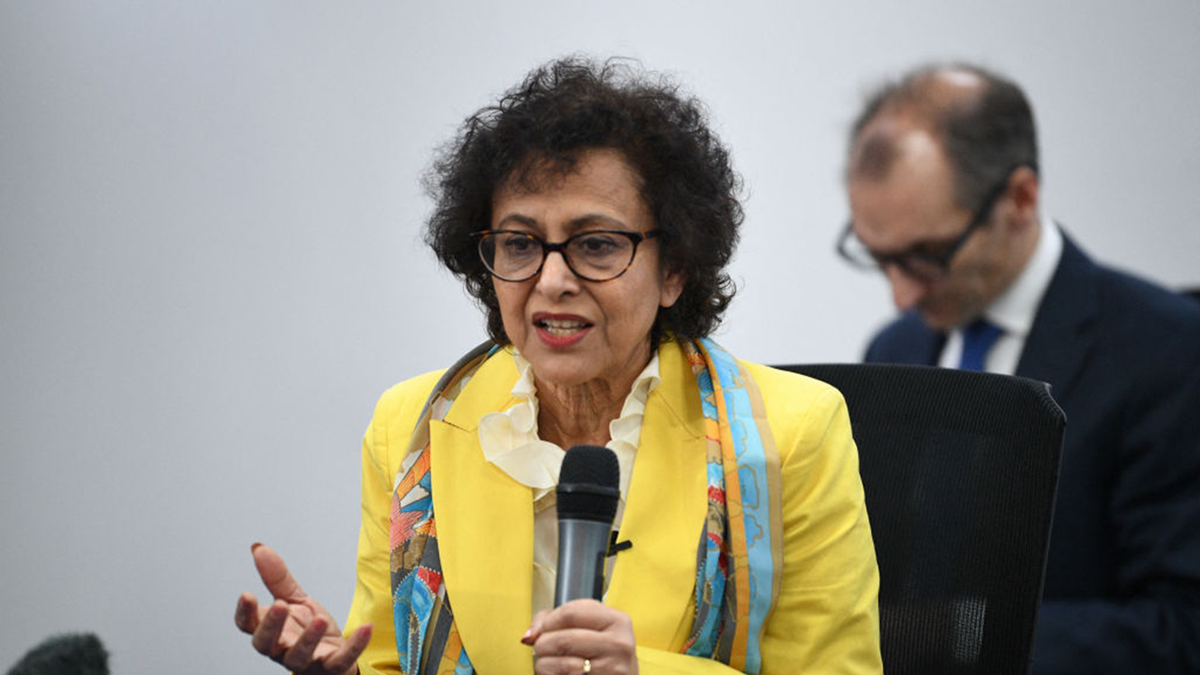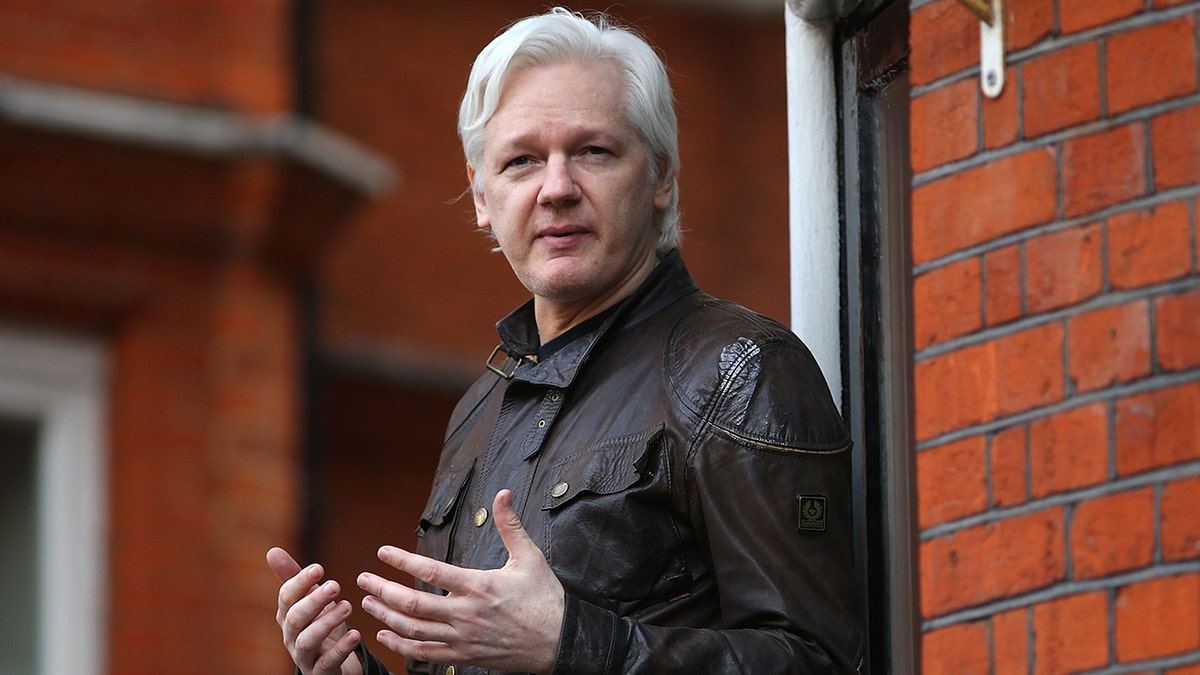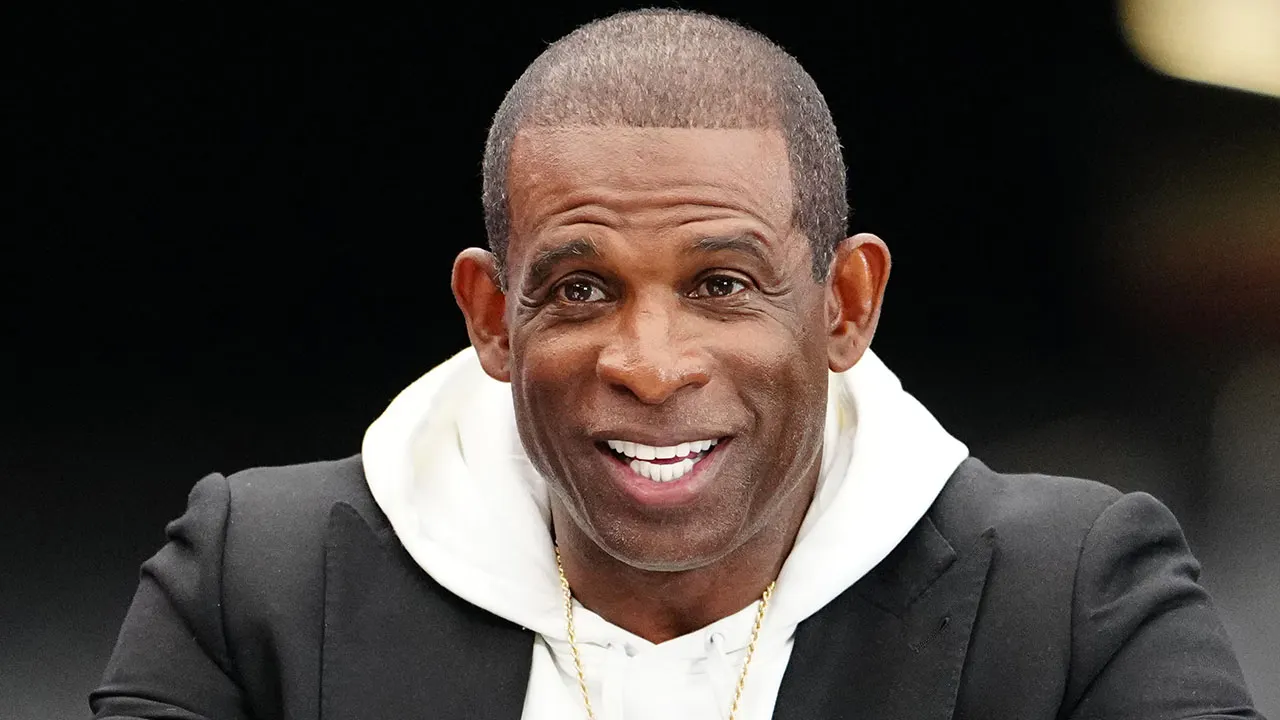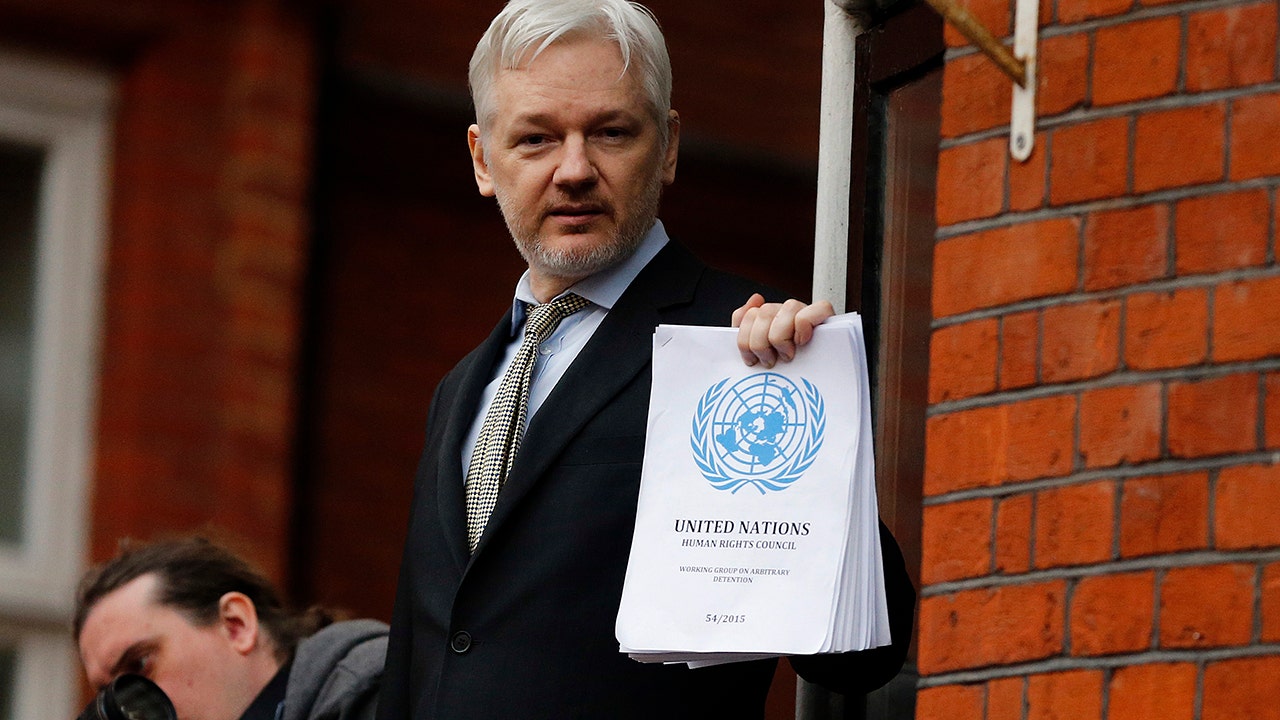A United Nations expert on freedom of expression called on the U.S. government to drop the charges against WikiLeaks founder Julian Assange, expressing concern that his possible extradition from the U.K. to face prosecution in the U.S. would set a dangerous precedent for investigative journalism.
The Special Rapporteur on freedom of expression at the U.N., Irene Khan, said Assange’s possible extradition to the U.S. and subsequent prosecution could have serious implications for freedom of expression. Assange’s possible final appeal challenging his extradition wrapped up last month before the British High Court in London, with Assange not appearing in court due to health reasons.
“Gathering, reporting and disseminating information, including national security information when it is in the public interest, is a legitimate exercise of journalism and should not be treated as a crime,” Khan said in a statement Friday.
Assange, 52, is charged in connection with WikiLeaks’ 2010 publication of classified U.S. military documents leaked by U.S. Army intelligence analyst Chelsea Manning. Assange is facing 17 charges for allegedly receiving, possessing and communicating classified information to the public under the Espionage Act, and one charge alleging a conspiracy to commit computer intrusion.
A United Nations expert on freedom of expression called on the U.S. government to drop the charges against WikiLeaks founder Julian Assange. ((AP Photo/Frank Augstein, File))
“I am concerned about the use of the Espionage Act in this case, as this statute provides no protection for the publication of information in the public interest,” Khan said.
The charges were brought by the Trump administration’s Justice Department over WikiLeaks’ 2010 publication of cables leaked by Manning detailing war crimes committed by the U.S. government in Iraq, Afghanistan and the Guantánamo Bay, Cuba, detention camp. The materials also exposed instances of the CIA engaging in torture and rendition.
WikiLeaks’ “Collateral Murder” video showing the U.S. military gunning down civilians in Iraq, including two Reuters journalists, was also published 14 years ago.
Assange, who is Australian, is the first publisher to be charged by the U.S. government under the Espionage Act, and many press freedom groups have argued that his prosecution is intended to criminalize journalism.
“It would set a dangerous precedent that could have a chilling effect on investigative journalism in the United States and possibly elsewhere in the world,” Khan said.
Assange has been held at London’s high-security Belmarsh Prison since he was removed from the Ecuadorian Embassy on April 11, 2019, for breaching bail conditions. He had sought asylum at the embassy since 2012 to avoid being sent to Sweden over allegations he raped two women because Sweden would not provide assurances it would protect him from extradition to the U.S. The investigations into the sexual assault allegations were eventually dropped.
A U.K. District Judge rejected the U.S. extradition request in 2021 on the grounds that Assange was likely to kill himself if he was held under harsh U.S. prison conditions. Higher courts later overturned that decision after receiving assurances from the U.S. about his treatment, and the British government signed an extradition order in June 2022.
While February’s hearing could be Assange’s final appeal attempting to block his extradition to the U.S., a full appeal hearing could come in the future if the judges rule in his favor. If he loses this appeal, however, Assange’s only remaining option would be at the European Court of Human Rights.
The judges who heard arguments in the two-day hearing last month said they would take time to reach a verdict in Assange’s case.

The Special Rapporteur on freedom of expression at the U.N., Irene Khan, said Assange’s possible extradition to the U.S. and subsequent prosecution could have serious implications for freedom of expression. (Getty Images)
Should he be extradited to the U.S. after exhausting all his legal appeals, Assange would face trial in Alexandria, Virginia, and could be sentenced to up to 175 years in an American maximum-security prison. His supporters have argued that he would not receive a fair trial if he is extradited.
“International human rights law provides strong protections for whistle-blowers, journalistic sources and reporting in the public interest,” Khan said. “I call on the United States and the United Kingdom, which profess to uphold the right to freedom of expression, to uphold these international standards in the case of Julian Assange.”
Last month, U.N. Special Rapporteur on Torture, Alice Jill Edwards, called on the U.K. government to halt the possible extradition of Assange over concerns that he would be at risk of treatment amounting to torture or other forms of ill-treatment or punishment.
In January, a group of Australian lawmakers wrote a letter to U.K. Home Secretary James Cleverly demanding Assange’s U.S. extradition be halted over concerns about his safety and well-being, urging the U.K. government to instead make an independent assessment of Assange’s risk of persecution.
Assange’s wife Stella has said that her husband’s life is at risk every day he remains in prison and that she believes he will die if he’s extradited to the U.S.
One of Assange’s lawyers, Mark Summers, said during last month’s hearing that there was evidence showing there had been a plan crafted by the Trump administration’s CIA to kidnap or murder Assange while he was in the Ecuadorean Embassy and that former President Trump had requested “detailed options” to kill him.
The CIA under the Trump administration allegedly had plans to kill Assange over the publication of sensitive agency hacking tools known as “Vault 7,” which were leaked to WikiLeaks, Yahoo reported in 2021. The agency said the leak represented “the largest data loss in CIA history.”
The agency was accused of having discussions “at the highest levels” of the administration about plans to assassinate Assange in London and allegedly acted upon orders from then-CIA director Mike Pompeo to draw up kill “sketches” and “options.” The CIA also had advanced plans to kidnap and rendition Assange, and had made a political decision to charge him, according to the Yahoo report.
While he was in the embassy, the CIA was exposed for spying on Assange and his lawyers. A judge recently ruled that a lawsuit brought against the CIA for spying on his visitors can move forward.

Assange is facing 17 charges for allegedly receiving, possessing and communicating classified information to the public under the Espionage Act, and one charge alleging a conspiracy to commit computer intrusion. (Getty Images)
The Obama administration in 2013 decided not to indict Assange over WikiLeaks’ 2010 publication of classified cables because it would have had to also indict journalists from major news outlets who published the same materials, which has been described as “The New York Times problem.” Former President Obama also commuted Manning’s 35-year sentence for violations of the Espionage Act and other offenses to seven years in January 2017, and Manning, who had been imprisoned since 2010, was released later that year.
But the Justice Department under former President Trump later moved to indict Assange under the Espionage Act, and the Biden administration has continued to pursue his prosecution.
Khan urged the U.K. authorities not to extradite Assange and the U.S. government to drop the charges against the Australian publisher.
CLICK HERE TO GET THE FOX NEWS APP
In 2022, the editors and publishers of U.S. and European outlets that worked with Assange on the publication of excerpts from the more than 250,000 documents he obtained in the Cablegate leak – The Guardian, The New York Times, Le Monde, Der Spiegel and El País – wrote an open letter calling for the U.S. to drop the charges against Assange.
There have also been made by lawmakers in the U.S. and Australia in the last year to demand Assange’s freedom, including a vote last month in which the Australian Parliament overwhelmingly supported calling on the U.S. and U.K. Governments to end Assange’s prosecution and a resolution introduced in January in the U.S. House calling for him to be released.















































